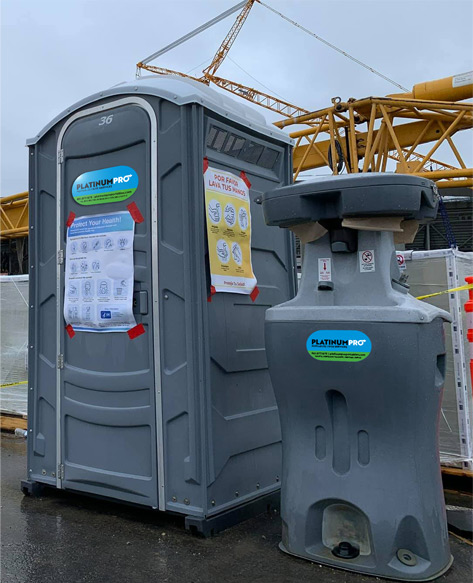Construction sites are bustling hubs of activity, with workers engaged in various tasks to bring projects to fruition. Amidst the chaos of heavy machinery and building materials, ensuring proper sanitation facilities might not be the first thing on everyone’s mind. However, adhering to portable toilet requirements is not only essential for the well-being of workers but also for regulatory compliance and maintaining a positive work environment.
In this article, we’ll delve into the crucial aspects of portable toilet requirements for construction sites, offering valuable insights for construction site managers and workers alike.
Understanding Regulatory Guidelines
- Every construction site must adhere to specific regulatory guidelines regarding sanitation facilities. These guidelines are often set forth by local, state, or federal authorities and aim to promote health, safety, and environmental standards.
- Familiarize yourself with the relevant regulations governing portable toilets in your area. These regulations typically dictate the number of toilets required based on the size of the workforce and the duration of the project.
Determining the Adequate Number of Toilets
- The number of portable toilets needed on a construction site depends on several factors, including the size of the workforce, the duration of the project, and the availability of nearby restroom facilities.
- As a general rule of thumb, one toilet should be provided for every 10 workers on-site. However, this number may vary based on local regulations and the specific requirements of the project. Purchasing enough portable toilets for the construction site is therefore essential. Are you still looking for a reliable supplier? Then take a look at these portable toilets for sale on Toypek.eu. With this supplier it is possible to adapt the mobile toilet to your preferences.
Placement and Accessibility
- Proper placement of portable toilets is crucial for ensuring accessibility and convenience for workers. Place toilets in strategic locations throughout the construction site, ensuring easy access from various work areas.
- Consider factors such as proximity to work zones, ease of navigation, and accessibility for workers with disabilities. Additionally, ensure that toilets are placed on stable ground to prevent tipping or instability.
Maintenance and Hygiene
- Regular maintenance of portable toilets is essential to uphold hygiene standards and prevent unpleasant odors and unsanitary conditions. Assign responsibility for toilet maintenance to designated personnel or a professional service provider.
- Implement a regular cleaning schedule to ensure that toilets are emptied, sanitized, and restocked with essential supplies such as toilet paper, hand sanitizer, and handwashing facilities.
- Encourage workers to maintain cleanliness and respect shared facilities by providing educational materials and promoting a culture of hygiene and sanitation.
Environmental Considerations
- Construction sites often operate in environmentally sensitive areas or areas with limited infrastructure. As such, it’s essential to consider the environmental impact of portable toilets and implement measures to mitigate any adverse effects.
- Choose environmentally friendly portable toilet options, such as units with low-flow flush systems or biodegradable waste treatment solutions.
- Properly dispose of waste from portable toilets in accordance with local regulations and environmental best practices, avoiding contamination of soil, water sources, or sensitive ecosystems.
Conclusion
Ensuring compliance with portable toilet requirements is not only a legal obligation but also a fundamental aspect of promoting health, safety, and well-being on construction sites. By understanding regulatory guidelines, determining the adequate number of toilets, ensuring proper placement and accessibility, maintaining hygiene standards, and considering environmental considerations, construction site managers can create a safer and more comfortable work environment for their teams. Remember, investing in proper sanitation facilities is an investment in the health, productivity, and reputation of your construction project.

